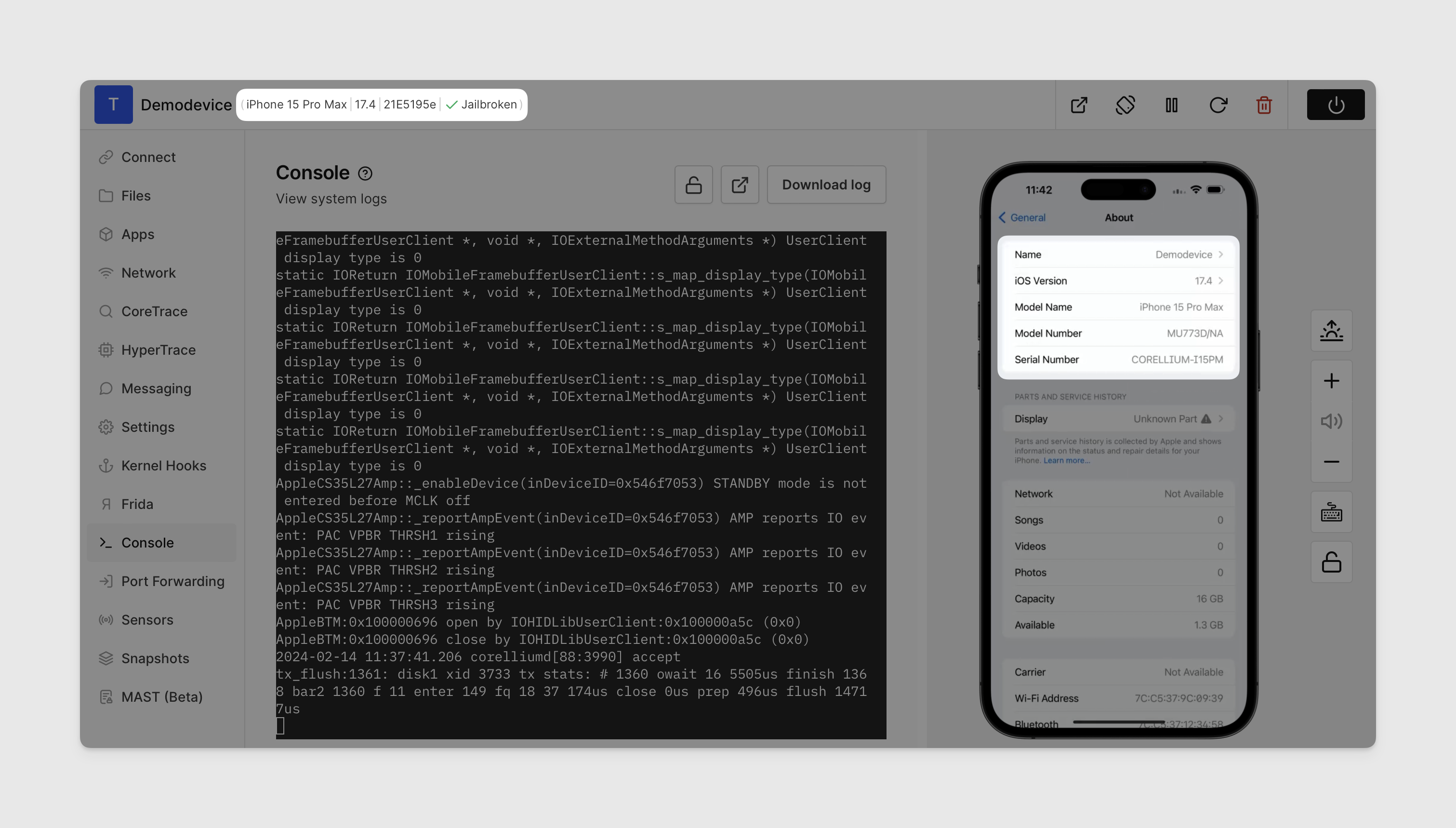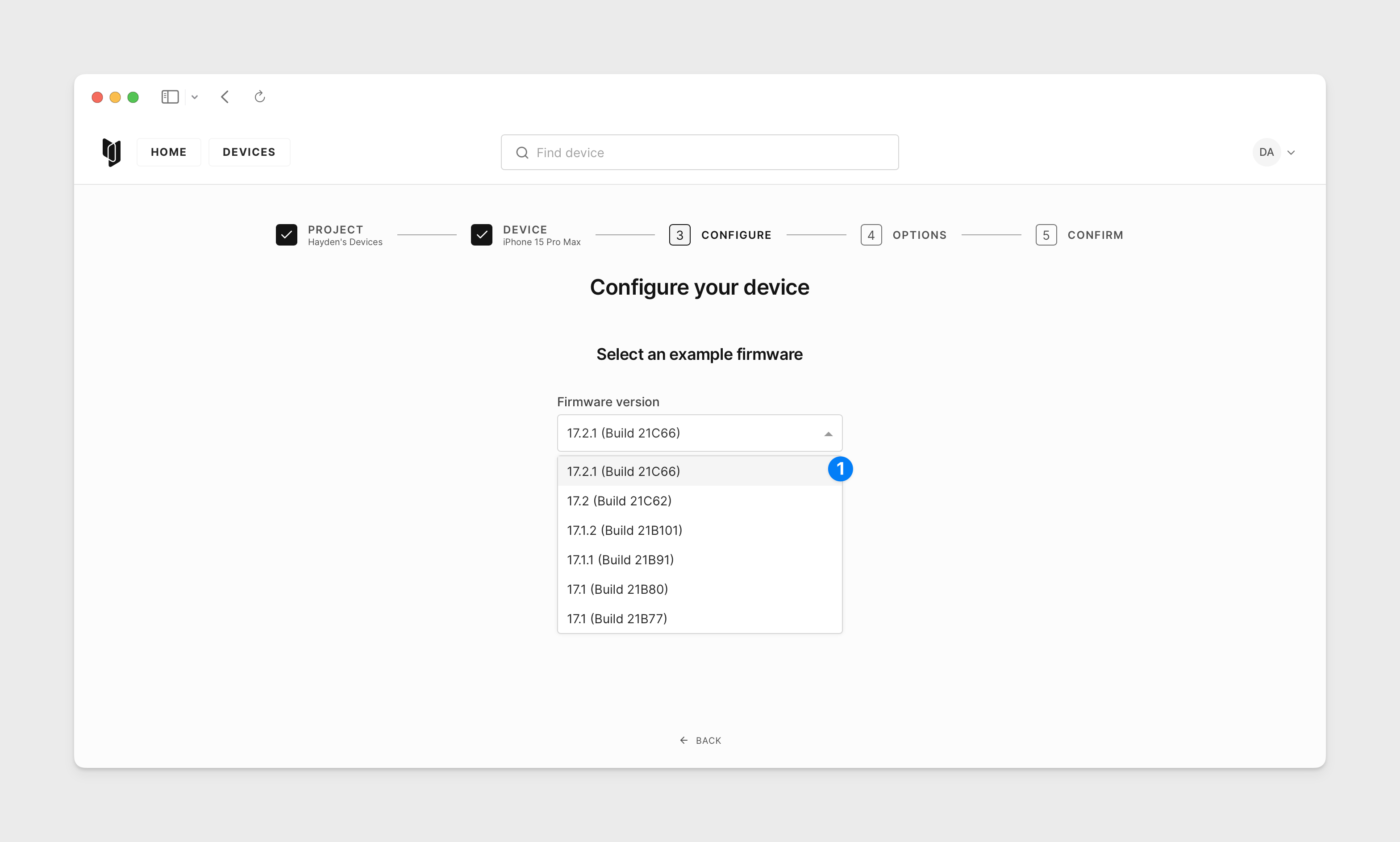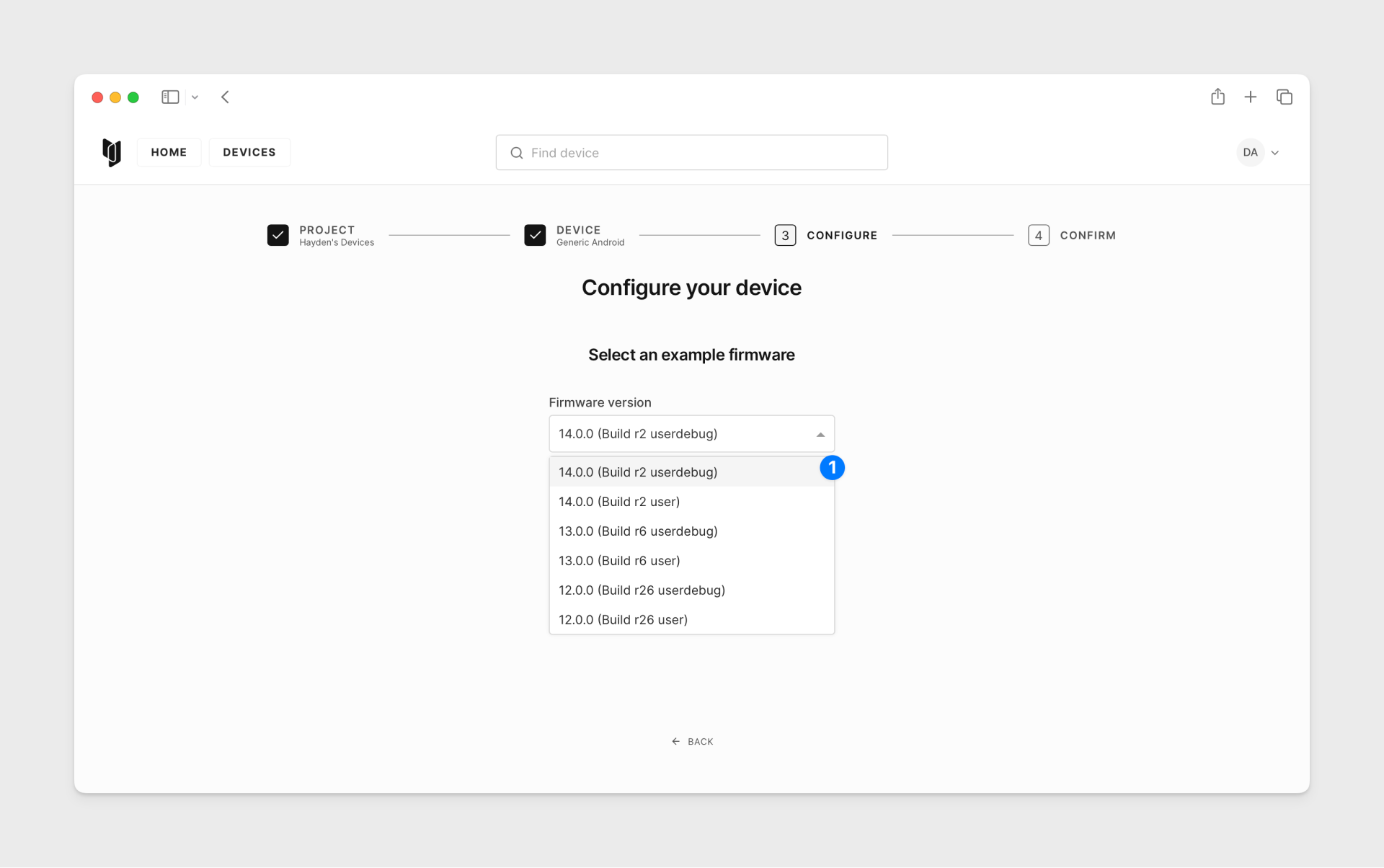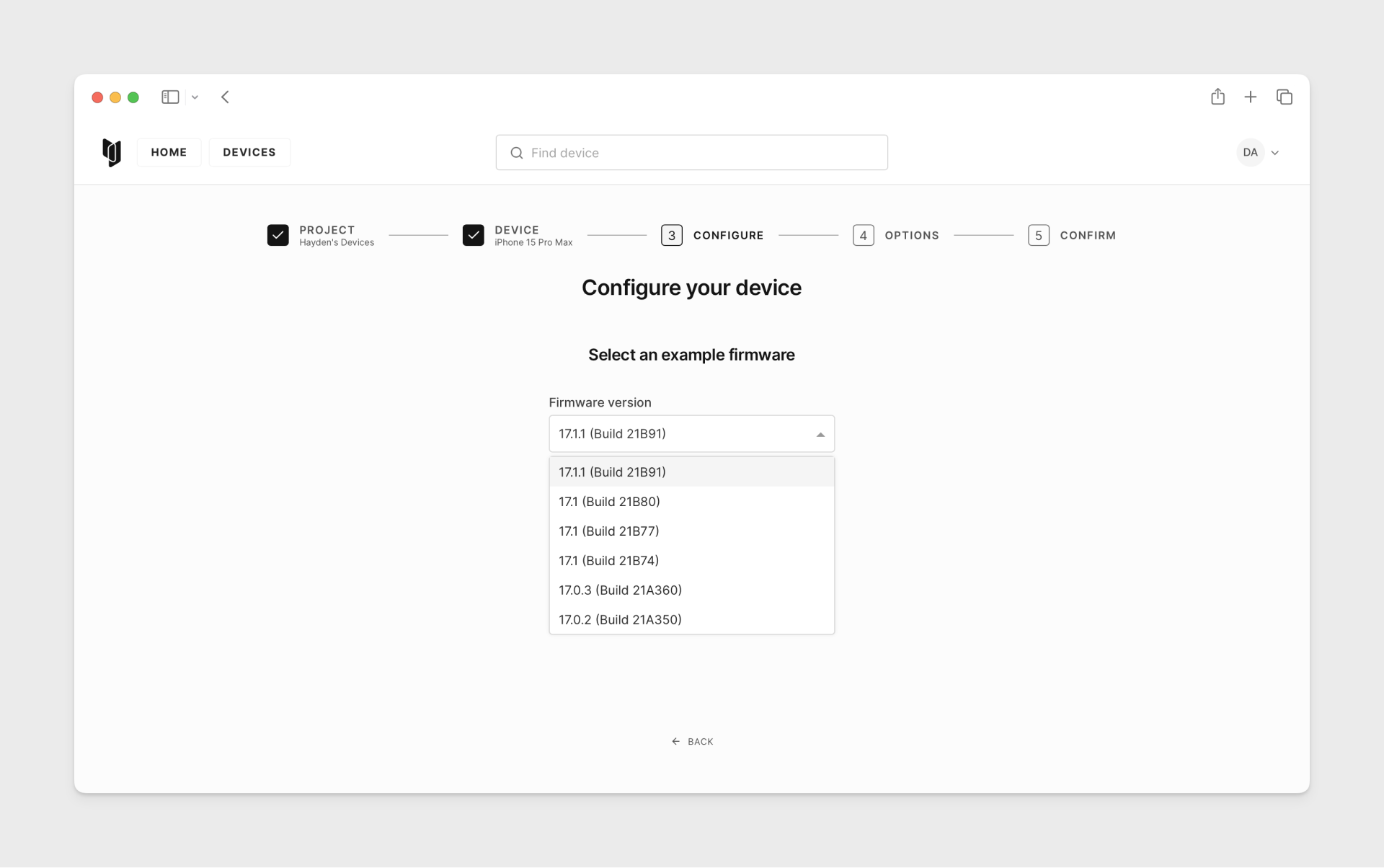Release 7.9.0
Corellium 7.9 expands device coverage across all supported iOS/iPadOS versions from legacy releases like 12.5.8 up through the newest 26.x builds (including beta tracks of 26.2.0/26.3.0 for SA Premium Falcon and full GA access to 26.3.0) giving you a seamless testing environment on every modern Apple ecosystem; it also adds a one-click "Take Screenshot" button in the UI that instantly downloads a local copy of any iOS/iPadOS or Android virtual device screen without ever writing the image back into the device's camera roll, eliminating export steps and preserving anytime forensic integrity; finally, you can now toggle WAN access on or off at creation time or anytime thereafter, allowing instant isolation to prevent data leakage or evidence alteration, or grant targeted internet connectivity for specific analysis steps. And finally, a brand-new Cluster Administrator role grants web-UI console access that eliminates SSH requirements to the appliance console(s), plus a new unified snapshot management-- clone, restore, rename, share, delete, global limits, and cross-node control, so you can manage every on-premises appliance completely through the platform. Together, these enhancements provide broader OS support, an immediate screenshot workflow, and precise network control all within a secure, unified Corellium platform.
Mobile OS Support
We've expanded our platform's compatibility with the latest mobile operating system versions:
iOS/iPadOS
- iOS/iPad OS 15.8.6
- iOS/iPad OS 16.7.14
- iOS/iPad OS 18.7.4
- iOS/iPad OS 18.7.5
- iOS/iPad OS 26.2.0 (Betas 1-3 for SA Premium Falcon only; RC1, RC2, RC3/GA for everyone)
- iOS/iPad OS 26.2.1
- iOS/iPad OS 26.3.0 (Betas 1-3 for SA Premium Falcon only; RC1 and RC2/GA for everyone)
New Features
WAN Access Toggle for Virtual Devices
- New Capability: Virtual devices now expose a built‑in switch that can enable or disable WAN (Internet) connectivity at any time.
- Where to Configure:
- During Creation: Choose “WAN Enabled” or “WAN Disabled” when initially provisioning the VM/Phone.
- Post‑Creation: Open the device’s settings panel and toggle Internet access on/off whenever you need it—no reboot required.
- Use Cases:
- Data Isolation & Leakage Prevention – Turn off WAN to create an air‑gapped environment for forensic or malware analysis, ensuring no external traffic can exfiltrate data.
- Evidence Preservation – Keep a device completely offline while capturing logs or snapshots, then restore connectivity later to pull results.
- Controlled Access – Grant network access only at specific analysis steps (e.g., when downloading samples, uploading test results, or calling an external API).
- Impact: Provides granular networking control without needing external firewalls or host‑level ACLs, streamlining secure testing workflows and reducing the risk of unintended data leakage.
One‑Click Screenshot Capture (iOS/iPadOS & Android)
- New UI Control: A dedicated “Take Screenshot” button now appears alongside the existing volume, lock, and other device‑control icons on every virtual device.
- Instant Download: Clicking the button automatically downloads a high‑resolution screenshot to your local workstation – no manual export steps required.
- No Camera‑Roll Placement: The image is captured and saved externally; it never gets written back into the device’s Photos/Camera Roll, keeping the virtual environment pristine for forensic or analytical workflows.
- Supported Platforms: Works identically on both iOS/iPadOS virtual devices and Android virtual devices, eliminating platform‑specific export gymnastics.
- User Benefit: Enables rapid, repeatable capture of UI states, logs, error messages, or any visual evidence without leaving the Corellium console or interrupting your analysis flow.
Administrative Changes
Cluster Admin Management
We're introducing a new user role and administrative capabilities designed specifically for managing on-premises appliances. The new Cluster Administrator role provides access to advanced troubleshooting and management tools that previously required direct command-line access.
New Capability: Appliance Console Access
- Cluster Administrators can now access the appliances's command line console directly within the web UI.
- Eliminates the need for direct serial or SSH access to appliances.
- Provides a secure, centralized interface for advanced troubleshooting.
- Available for all on-premises appliance deployments.
New Capability: Snapshot Management
- Cluster Administrators can now manage any and all device snapshots from a single location.
- Clone, Restore, Rename, Share, and Delete snapshots.
- Globally set number of snapshots allowed per device.
- Manage snapshots across all compute nodes of a clustered server environment.
These capabilities significantly reduce the need for manual intervention from Corellium Support teams, providing customers with greater autonomy and control over their on-premises appliance environments.
Bug Fixes & UI Enhancements
Various underlying bugs have been resolved to improve stability and performance. Minor user interface tweaks have been implemented for a more intuitive and user-friendly experience.
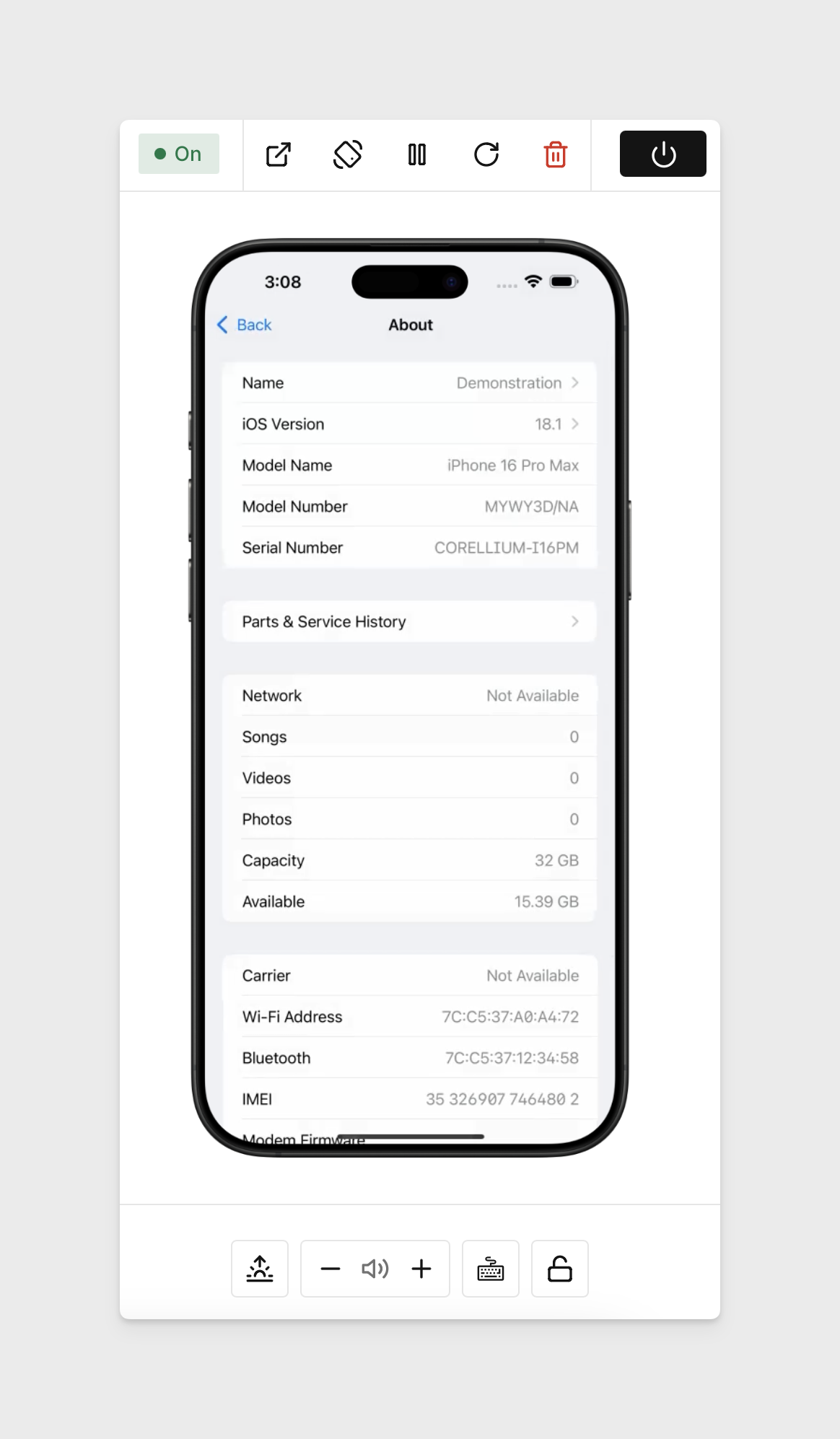
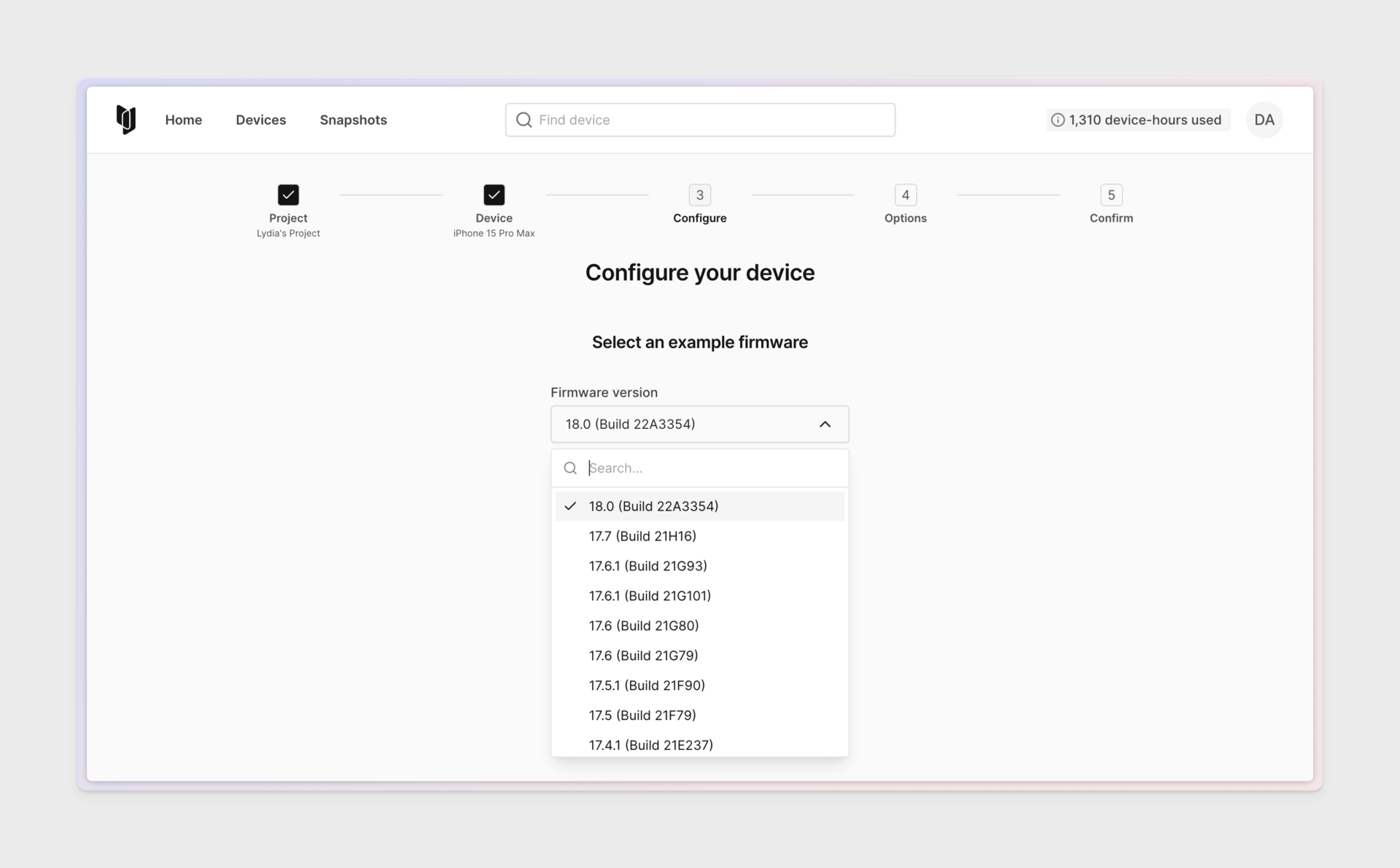
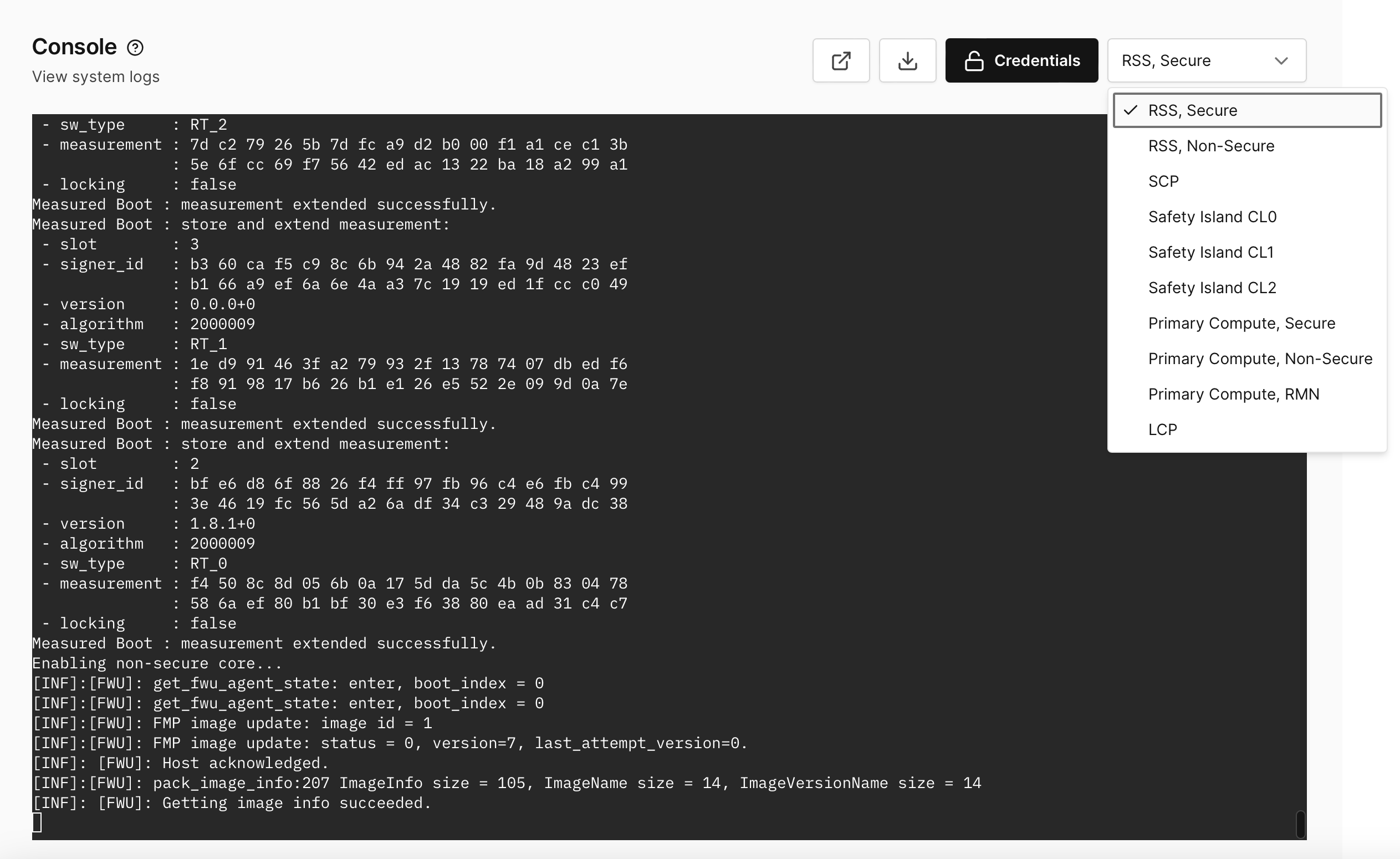
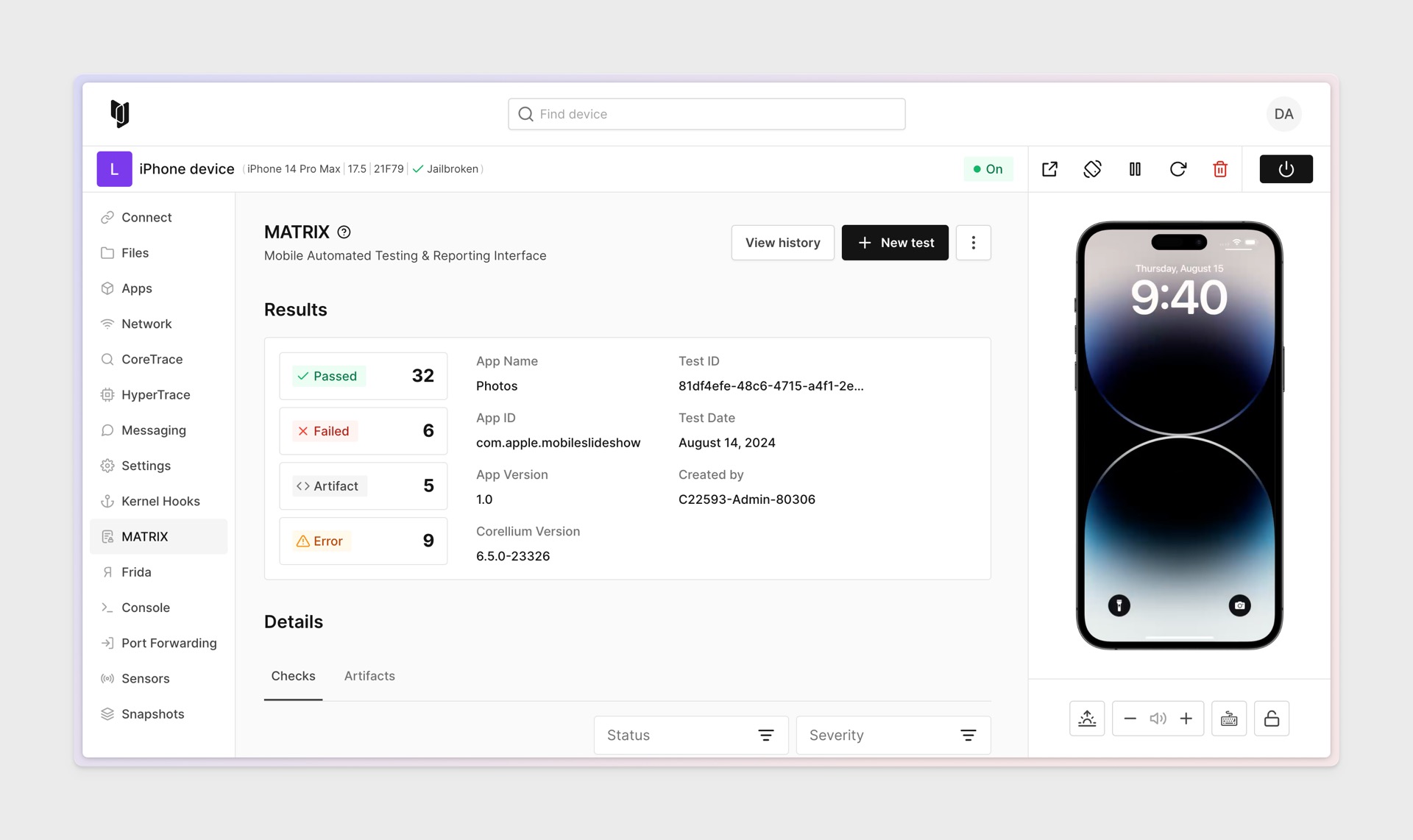 We made a stack of iterative improvements to our MATRIX feature!
We made a stack of iterative improvements to our MATRIX feature!